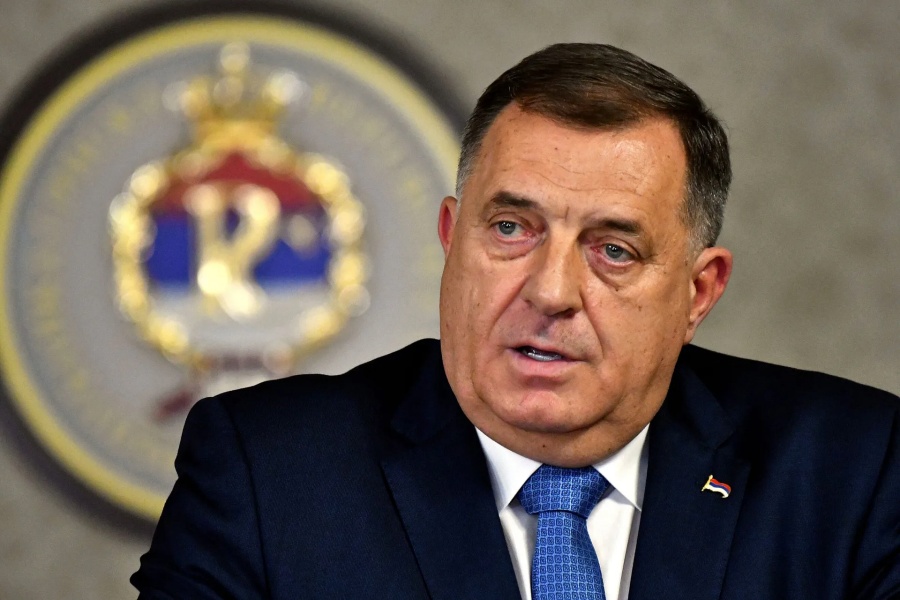European Commission warns that all leaders of Bosnia and Herzegovina must be mindful of rule of law as the country pursues EU membership, informs Politoco.
SARAJEVO, Bosnia-Herzegovina — European Union and U.S. officials on Monday condemned Bosnian Serb leader Milorad Dodik for awarding Russia’s Vladimir Putin with the highest honor of the entity he leads, warning about the impacts on joining the 27-member bloc.
Dodik’s Serb-majority entity of Republika Srpska, one of the two administrative units in Bosnia and Herzegovina, bestowed the award on Putin in absentia Sunday night before launching celebrations Monday of what is referred to as “Republic Day.” The holiday, which marks the date when Republika Srpska was founded at the onset of the Bosnian war, was declared illegal by the country’s constitutional court and is condemned for being the date when the ethnic cleansing of large swathes of Bosnia began during the 1992-1995 war.
Dodik, who has maintained a close relationship with Russia even amid the invasion of Ukraine, said Putin was being awarded “especially for his patriotic concern and love for Republika Srpska.”
The European Commission’s lead foreign affairs spokesman Peter Stano responded Monday, reminding the Balkan country, which gained EU candidate status just last month, that “political leaders in Bosnia and Herzegovina in all the entities know how important it is for the EU to stick to the rule of law.”
Stano added: “This is even more important in a situation where Bosnia has been awarded EU candidate status.”
The U.S. embassy in Sarajevo also said Monday that “Milorad Dodik’s decision to bestow an award on Vladimir Putin, the man who launched an unprovoked invasion of Ukraine that has resulted in the death of thousands of civilians and the massive destruction of infrastructure, was reprehensible.”
It continued: “It was a repudiation of the values of the Euro-Atlantic community and the rules-based international order.”
The EU has maintained a stabilizing role in the Western Balkans since the bloody wars of the 1990s swept the region following the disintegration of socialist Yugoslavia. In December, after years of negotiations, the bloc greenlit Bosnia’s candidacy status, joining Ukraine and Moldova among the most recent candidate countries.
But Bosnia has continuously faced political instability, especially from leaders like Dodik, who has voiced secessionist rhetoric and fomented nationalist sentiment.
“By highlighting his closeness to Putin, Dodik wants to emulate being a strong and relevant leader, despite the fact that Russia has been ostracized by most of the world,” said Ivana Korajlić, the executive director of Transparency International in Bosnia. “He was always proud of his strong relationship with Putin and Russia.”
However, Korajlić added, “there have been several warnings that Dodik’s actions will affect Bosnia’s EU integration process, but this does not affect Dodik in the slightest. If anything, he has continuously highlighted that Bosnia does not need to be an EU member.”

